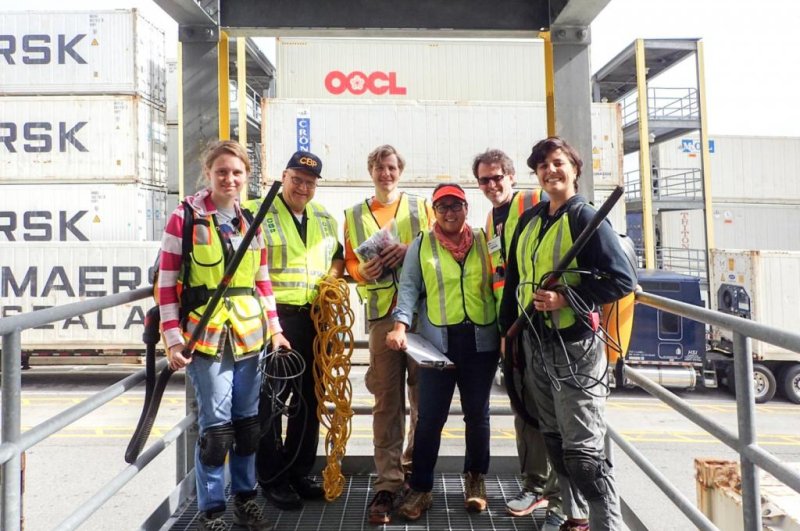
Seeds of nonnative plants hitch rides on refrigerated shipping containers
by Brooks HaysSept. 14 (UPI) -- Refrigerated shipping containers may be delivering more than just perishable goods. New research suggests the seeds of nonnative plants that float in the air can hitch a ride inside the air-intake grille of a refrigerated shipping container.
Over the course of two shipping seasons at the Port of Savannah, Georgia, a team of scientists from the USDA Forest Service and Arkansas State University vacuumed seeds from the air-intake grilles of a refrigerated shipping containers.
The researchers collected seeds from 30 plant taxa, including those of wild sugarcane, Saccharum spontaneum, an invasive grass and member of the USDA Federal Noxious Weed List.
Though often beautiful in their native habitats, noxious weeds can cause serious ecological and economic damage to agriculture, nurseries and forestry industries. Scientists worry that wild sugarcane could follow the paths of cogongrass and stiltgrass, two invasive species that have become widespread in parts of the United States.
Researchers used the data collected from their vacuuming surveys to analyze and model the risk of invasion by viable seeds. The team published their results Monday in the journal Scientific Reports.
"During the two shipping seasons, we estimate that over 40,000 seeds from this species entered the Garden City Terminal at the Port of Savannah," lead researcher Rima Lucardi, scientist with the Forest Service, said in a news release.
"This quantity of incoming seeds is more than sufficient to cause introduction and establishment of this nonnative invader, even If the escape rate from the shipping containers is limited," Lucardi said.
Researchers suggest the exteriors of shipping containers be thoroughly inspected for hitchhiking seeds at their points-of-origin and stops along the way. Robust efforts to catch the seeds of invasive plants before they take root is more cost effective than combatting the colonization of established nonnative grasses.
"Investment in the prevention and early detection of nonnative plant species with known negative impacts results in nearly a 100-fold increase in economic return when compared to managing widespread nonnatives that can no longer be contained," said Lucardi.